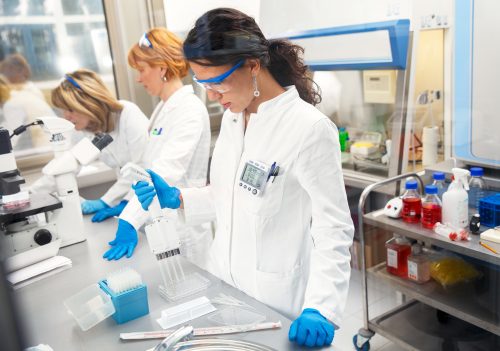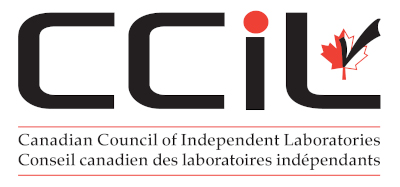Overview
With over 2800 establishments employing over 25,000 workers, Canada’s $5.2 billion independent laboratory testing industry (2021) is an advanced, high-technology sector that plays a critical role in our society and economy.
The testing industry is vital to Canada’s global competitiveness, productivity and sustainability as our member laboratories are engaged, on behalf of customers, in significant research and development aimed at creating new products and services and enhancing operational efficiencies.
CCIL laboratories play a crucial role in safeguarding Canada’s natural and manufactured environments. CCIL members help protect our water, air and soil; the structural integrity of our highways, bridges, buildings and infrastructure; the safety of our food; and the reliability of the products we purchase. CCIL members also conduct physical, engineering and life sciences research.
Today, both the private and public sectors are increasingly relying on testing labs. Testing laboratories:
- Provide owners, engineers, contractors, and regulators with unbiased quality assurance.
- Provide risk mitigation by identifying potentially disastrous oversights that could harm the public and/or property.
- Guarantee long-term end-user satisfaction and maintenance of brand value.
- Support global initiatives such as greenhouse gas reduction and transition to alternative clean energy sources.
- Provide public confidence regarding the safety of food, water and other consumer products.
- Provide testing in support of an ever-increasing list of emerging contaminants of concern.
- Assist with the development and implementation of new construction and environmental regulations.
- Partner with clients to expand global trade and provide customers with a greater diversity of goods based on regulatory requirements.
- Ensuring value-for-money in an era of government constraint.
- Minimizing the cost of product liability insurance.
Wages in this industry are well above those found in the economy. The average annual salary of about $ 72,000 (2021) reflects the fact that 94% of employees have post-secondary education with more than half of those holding science and engineering degrees.
Many benefits accrue to Canada and its citizens because of the industry investment in this country. In addition, to creating higher paying, knowledge-based jobs, the sector contributes significantly to taxes and GDP. It also supports other areas of the economy through its demand for scientific equipment, technology, and supplies.
CCIL Member laboratories are in every province and territory. There are hundreds of small and medium-sized, locally owned laboratories and about a dozen larger establishments with 200 or more employees.
Typically, the larger companies in the industry provide a wide array of services from multiple sites, while the smaller firms focus on certain niche services and defined geographic markets.
Growth in this industry has outpaced the general economy and will likely continue to do so into the foreseeable future. The Canadian testing market is expected to reach approximately $ 5.8 billion by the year 2026. (Statistics Canada and IBISWorld, Laboratory Testing Services in Canada, December 2021).

